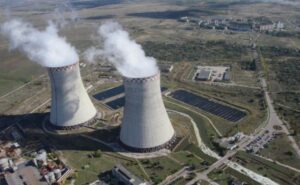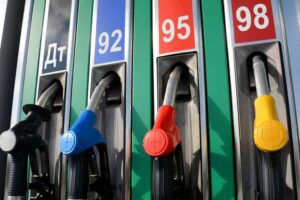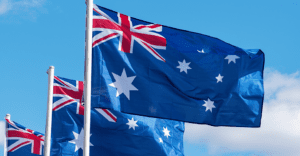
Oil prices are declining on Wednesday morning after reports of a record two-year increase in US inventories of the fuel last week.
The cost of March futures for Brent crude oil on London’s ICE Futures exchange fell by $0.77 (0.96%) to $79.33 a barrel by 7:10 a.m. compared to the value at the close of trading the previous day. Those contracts rose 45 cents (0.6%) to $80.10 per barrel on Tuesday.
The price of WTI futures for February at electronic trades on the New York Mercantile Exchange (NYMEX) is $74.34 a barrel by that time, down $0.78 (1.04%) from the previous session. The contract rose by 49 cents (0.7 percent) to $75.12 a barrel at the end of last session.
Previous day’s report of American Petroleum Institute (API) showed that U.S. inventories climbed by 14.9 million barrels on January 6, following a decline over the past two weeks. The increase was the highest since February 2021.
Traders are now waiting for official data to be released by the Energy Department on Wednesday at 5:30 p.m. Analysts polled by Trading Economics predict that the Energy Department data will point to a 2.24 million-barrel decline in oil reserves. The survey was conducted before the API data was released.
The day before the oil market was supported by expectations of growth in demand for fuel in China as the last restrictions were canceled. At the same time, investors are concerned about the growing number of infections of coronavirus in the country.
“We are confident that oil prices will go back up after the peak of COVID-19 infection in China has passed and economic activity is accelerating,” said Carsten Fritsch, a commodity market analyst at Commerzbank.
The price of March futures on London’s ICE Futures exchange fell by $0.77 (0.96%) to $79.33 per barrel by 7:10 a.m. from the close of trading the day before. Those contracts rose 45 cents (0.6%) to $80.10 per barrel on Tuesday.
The price of WTI futures for February at electronic trades on the New York Mercantile Exchange (NYMEX) is $74.34 per barrel by that time, down $0.78 (1.04%) from the previous session. The contract rose by 49 cents (0.7 percent) to $75.12 a barrel at the end of last session.
Previous day’s report of American Petroleum Institute (API) showed that U.S. inventories climbed by 14.9 mln barrels on January 6 following a decline the previous two weeks. The increase was the highest since February 2021.
Traders are now waiting for official data to be released by the Energy Department on Wednesday at 5:30 p.m. Analysts polled by Trading Economics predict that the Energy Department data will point to a 2.24 million-barrel decline in oil reserves. The survey was conducted before the API data was released.
The day before the oil market was supported by expectations of growth in demand for fuel in China as the last restrictions were canceled. At the same time, investors are concerned about the growing number of infections of coronavirus in the country.
“We are confident that oil prices will go back up after the peak of COVID-19 disease in China and the acceleration of economic activity,” – said a commodity market analyst at Commerzbank Karsten Fritsch.

Metinvest Mining and Metallurgical Group has handed over almost a million liters of fuel and 312 vehicles of various types to units of the AFU during Russia’s full-scale invasion of Ukraine.
According to a company press release, this way increases the mobility of defenders as part of Rinat Akhmetov’s Steel Front militarized initiative.
“The war of the XXI century is the confrontation of technology. Therefore, the advantage in the battlefield often depends on equipping the troops with the right equipment. In addition to weapons, vehicles are important. It is they that help fortify positions, provide the necessary units, move quickly and stay one step ahead of the enemies. To keep our defenders mobile, Metinvest Group sends fuel and vehicles to the front lines,” the press release states.
It is noted that in ten months of full-scale war Metinvest allocated over 2.8 billion UAH, so that Ukraine could withstand and win. More than half of this amount, 1.5 billion UAH, went to the army and the military.
Thus, at the beginning of the full-scale invasion the defenders received special-purpose vehicles from the company’s enterprises. These were trucks, bulldozers and excavators. They were used for construction of fortifications and construction of protective structures.
“Metinvest, within the framework of Rinat Akhmetov’s Steel Front militarized initiative, organized the delivery of vehicles from abroad. Primarily pickup trucks, all-wheel-drive jeeps and vans were purchased and sent to the front lines – they were needed at all front lines to deliver ammunition and personnel, evacuate the wounded, transport important cargoes, conduct redeployment and conduct raids behind enemy lines.
In addition, Metinvest provided military medics of the Main Directorate of Intelligence of the Ministry of Defense of Ukraine with ambulances. 20 specialized vehicles were purchased in Europe to save the lives of wounded fighters.
Metinvest Group also donates fuel for the needs of the Armed Forces and Territorial Defense Forces. The defenders were allocated almost a million liters of gasoline and diesel fuel to fuel their vehicles and military equipment. It especially supported the military in spring, when there was a shortage of fuel on the market. And the scarce product is also systematically sent to the communities of Avdeevka, so that critical infrastructure services take care of the citizens.
“Our defenders are pushing hard to cleanse Ukraine of its enemies. And we have made sure that the AFU has vehicles and full tanks of fuel. This war is built on mobility and the ability to stay ahead of the enemy. That’s why we also provide the military with technological drones and thermal imagers. And while the defenders defend our country’s independence on the front lines, Metinvest Group is their reliable support in bringing Ukraine’s victory closer,” said Metinvest CEO Yury Ryenkov, quoted by the press service.
“Metinvest is a vertically integrated group of mining and metallurgical enterprises. Its enterprises are located in Ukraine – in Donetsk, Lugansk, Zaporozhye and Dnipropetrovsk regions and in European countries.
The major shareholders of the holding are SCM Group (71.24%) and Smart Holding (23.76%) that jointly manage it.
Metinvest Holding LLC is the management company of Metinvest group.

As part of the Steel Front military initiative founded by Rinat Akhmetov, more than 2,000 drones and walkie-talkies, 700 cars and half a million liters of fuel were handed over to Ukrainian soldiers, the businessman’s press service told Interfax-Ukraine.
He also handed over to the Armed Forces of Ukraine more than 150,000 bulletproof vests produced at SCM enterprises. “For this, metallurgists have mastered the technology of smelting special armored steel of a high level of protection, and also found contractors who sew plate carriers,” the press service reports.
In addition to bulletproof vests, the soldiers also received other means of protection: more than 20,000 helmets and 40,000 first-aid kits produced in accordance with NATO standards. “Because this war is primarily a war of high technology, Akhmetov has directed millions to purchase cars, drones and walkie-talkies – this is what gives our soldiers an advantage at the front,” the text says.
More than 1,011 modern drones and 1,292 walkie-talkies, 1,600 special devices (thermal imagers, rangefinders) have already been handed over to the military. To ensure the mobility of the units, the SCM businesses handed over more than 700 vehicles to the front, primarily reliable off-road vehicles, and provided them with fuel. In total, 595,000 liters of fuel were sent to the needs of the Armed Forces of Ukraine and peaceful cities.
“We do not plan to stop and will do everything to bring Ukraine’s victory closer. And we will definitely win,” Akhmetov said.
As reported, since the beginning of the war, SCM companies have sent over UAH 3 billion to help Ukraine and Ukrainians, and this figure is growing every day.

In Zhytomyr and Lvov, they plan to build new thermal power plants on biofuel in a short time to save and reduce the use of natural gas, the press service of NJSC Naftogaz of Ukraine reported.
Naftogaz has begun preparatory work for the construction of thermal power plants that will operate on biomass (wood cod) and solid secondary fuel (RDF) in Lvov and Zhytomyr. The total capacity of the facilities will be 90 MW of thermal energy and 11 MW of electricity. The planned period for putting objects into operation in Lviv is the 1st quarter of 2023, in Zhytomyr – the 4th quarter of 2023,” the text of the release published on the company’s website on Saturday says.
As noted, Naftogaz intends to build at least 9 thermal power plants and bio-boiler houses in 8 regions of Ukraine with a total capacity of 250 MW of thermal energy and 52 MW of electricity.
“The company has an ambitious goal of becoming the largest biomass heat generator by 2027 and replacing about 2 billion cubic meters of natural gas. Ukraine can almost completely abandon the use of natural gas for central heating, replacing it, in particular, with bioenergy,” the statement said. release.
It is reported that during his working trip on September 30 and October 1 to Lviv and Zhytomyr, the head of the board, Yuriy Vitrenko, noted that the NAC helps Ukrainian cities to transfer their CHPPs from gas to biofuel (we are talking about projects in Zhytomyr, Lvov, Akhtyrka) and is ready to support and other cities in this direction.
“We are interested in investing in such projects in order to import less gas at enormous prices. The implementation of such projects is also economically beneficial, and for the environment, such investments quickly pay off, while tax money goes to local budgets, and the number of jobs grows” , Vitrenko stressed.
According to him, a comprehensive approach is needed for a smooth passage of the heating season. In particular, sufficient gas reserves in storage (currently 13.9 billion cubic meters) and stabilization of its own production (gas – IF-U) are the most important tasks for Naftogaz, and the transition of heat generating enterprises to modern technologies and the use of biofuels, and the modernization of networks to reduce heat loss.
In turn, the mayors of Lviv and Zhytomyr Sergey Sukhomlin and Andrey Sadovy noted the successful implementation of this project, which will be able to provide the production of 50 MW of energy generated from alternative fuels and reduce the dependence of cities on natural gas, Naftogaz stressed.
Thus, in Zhytomyr in 2023 they plan to use 10% of the consumed gas, in particular, in 2015, 93 million cubic meters of gas, and in 2022 there should be about 45 million cubic meters. The authorities plan to implement three projects in the city to save gas and turn household waste into heat and electricity.
And in Lvov Novoyavorivsk plans to build a modern thermal power plant in a short time. Sadovyi noted that it will cover about a quarter of the city’s heat needs. The project also includes the construction of a sorting complex for municipal solid waste.
“Cod trees and the organic component of MSW will be used as fuel for the thermal power plant – this is paper, cardboard, food waste, wood, leather, fabric. By implementing this project, we will be able to save $ 24 million that we spent on gas. And the residents of Novoyavorivsk will receive cheaper heat and hot water throughout the year,” the NAC said.
According to the project, the required volume of MSW collection is 70,000 tons per year, which includes 30-35% secondary resources, as well as biodegradable and combustible (65%), namely about 45,000 tons per year. Another fuel component is planned to use wood chips with a volume of 39,000 tons per year.

The Verkhovna Rada of Ukraine at its plenary session on Wednesday adopted by 255 votes bill No. 7668-d on the return of excise taxes on motor fuel.
According to the head of the Verkhovna Rada of Ukraine Committee on Finance, Tax and Customs Policy Daniil Getmantsev, the excise rate for gasoline and diesel is EUR100 (hereinafter per 1000 liters), for liquefied gas, butane and isobutane – EUR52, for alternative motor fuel and biodiesel – EUR100.
At the same time, a zero excise rate for fuel has been set for the Ministry of Defense. “This benefit will be valid exclusively for the Ministry of Defense during the period of martial law and the state of emergency,” said Yaroslav Zheleznyak, People’s Deputy (Voice faction), on the Telegram channel.
According to him, the law comes into force one day after its publication, so the return of excises should be expected at the end of September.
VAT for all types of fuel remains at 7%.
As reported, in March 2022, the Rada canceled excise taxes on motor fuel.

Since July 5, Australia has marked tariffs on Ukrainian imports of goods, in addition to alcohol, fuel and tobacco, as a support package for a year, according to the website of the Australian Department of Trade and Tourism.
As indicated by the agency, we are talking about reducing tariffs from 5% to zero for a period of 12 months for a number of goods that are produced or produced in Ukraine. At the same time, it is clarified that duties equivalent to excises remain in force, for example, those that apply to fuel, alcohol and tobacco products.
According to the report, such measures from Australia and other states support the economy of Ukraine and expand its trading opportunities, and they are also important for Ukraine’s recovery in the near and long term.
According to the report, in 2021, Ukrainian exports to Australia amounted to $122 million.